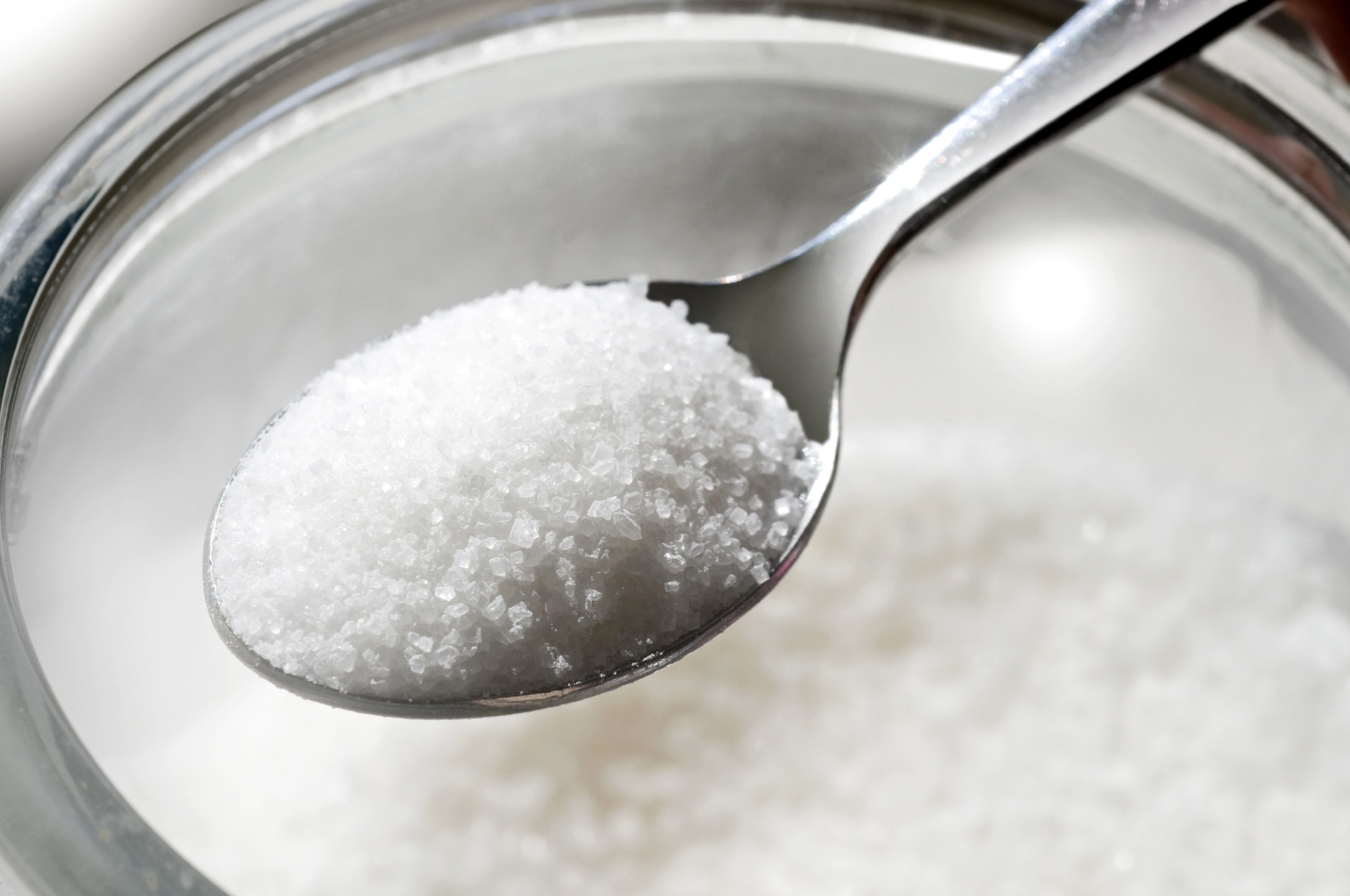If you’re on this site, you likely care (or are starting to care) about your health. And if you care about your health, you probably read a fair number of food labels. But do you fully understand them or do you go straight to the calorie line? If so, you’re only getting part of the picture. For instance, what I’ve seen more and more is “sugar alcohol” under the carbohydrate section. Do you know what sugar alcohol, how it will affect your diet, and can sugar alcohol get you drunk?
Now yes, you could look sugar alcohol up on Wikipedia thinking it will be helpful, but it’s not. Why? Cause it reads like this:
A sugar alcohol (also known as a polyol, polyhydric alcohol, or polyalcohol) is a hydrogenated form of carbohydrate, whose carbonyl group (aldehyde or ketone, reducing sugar) has been reduced to a primary or secondary hydroxyl group (hence the alcohol). Sugar alcohols have the general formula H(HCHO)n+1H, whereas sugars have H(HCHO)nHCO. In commercial foodstuffs sugar alcohols are commonly used in place of table sugar (sucrose), often in combination with high intensity artificial sweeteners to counter the low sweetness. Of these, xylitol is perhaps the most popular due to its similarity to sucrose in visual appearance and sweetness.
You lost me at “… also known as a polyol,polyhydric alcohol, or polyalcohol.”
Fortunately, I’m here to help decode this nutritional mumbo jumbo. Sugar alcohol has a structure that resembles part sugar and part alcohol, hence the name. However, the tricky thing is that it’s neither. Sugar alcohols, at their simplest, are a type of carbohydrate. If you don’t know already, carbohydrates are one of three macronutrients (the other two being proteins and fats) and in the most basic sense, serve as your body’s first source of energy. You with me?
Sugar alcohol = carbohydrate
Sugar alcohol also has a sweetness to it.
Sugar alcohol = yummy
But the reason that manufacturers put them in your food (they also occur in some plants) isn’t just for flavor because they could add table sugar for that. It’s what your body does with this carbohydrate. You see, unlike other types of carbohydrates, and more specifically table sugar, sugar alcohols contain few calories because they are absorbed slowly and incompletely. And the portion that is absorbed is converted to energy by a process requiring very little insulin (if any), which keeps blood glucose levels nearly level (and high blood glucose is likely the number one detriment to effectively metabolizing fat.) This is why sugar alcohol is found in so many products made for diabetics. And more and more, they’re found health supplements as well (not to mention my new favorite dark chocolate).
Sugar alcohol = lower calorie, ineffective glucose stimulant
Let’s pause and look at our equation so far:
Sugar alcohol = a yummy, lower calorie, carbohydrate that won’t necessarily cause us to store fat
| Sugar Alcohol | Calories/Gram | Sweetness Compared to Sucrose | Sources |
| Sorbitol | 2.6 | 50% to 70% | Sugar-free hard and soft candies, chewing gum, flavored jam and jelly spreads, frozen foods, and baked goods |
| Mannitol | 1.6 | 50% to 70% | Chewing gum, hard and soft candies, flavored jam and jelly spreads, confections, and frostings |
| Xylitol | 2.4 | 100% | Chewing gum, hard candies, and pharmaceutical products |
| Erythritol | 0.2 | 60% to 80% | Confectionery and baked products, chewing gum, and some beverages |
| Isomalt | 2.0 | 45% to 65% | Hard and soft candies, ice cream, toffee, fudge, lollipops, wafers, and chewing gum |
| Lactitol | 2.0 | 30% to 40% | Chocolate, cookies and cakes, hard and soft candies, and frozen dairy desserts |
| Hydrogenated starch hydrolysates (HSH) | 3.0 | 25% to 50% | Sugar-free foods and candies, and low-calorie foods |
| Maltitol | 2.1 | 90% | Sugar-free chocolate, hard candies, chewing gum, baked goods, and ice cream |
Sounds great, right? Well yes and no. Sugar alcohol is not without its side effects. First of all, because it isn’t completely absorbed by the digestive system, it can cause bloating, gas, or diarrhea from fermenting in the intestines. This usually occurs from overeating it. But still, a concern nonetheless. And secondly, we don’t really know the long-term effect of regularly consuming sugar alcohol. I’m not implying there are negative effects, we just don’t know.
Sugar alcohol = a yummy, lower calorie, carbohydrate that won’t necessarily cause us to store fat, but could cause other ill-effects short term, and potentially unknown ones long-term
But it’s not all bad news. In addition to providing sweetness with fewer calories, sugar alcohols are not metabolized by oral bacteria, and so they do not contribute to tooth decay (in fact one of them actually inhibits bacterial growth in the mouth). This is why they can often be found in chewing gums. And the only buzz you’ll get off of it is the flavor punch it will add to your food.
Sugar alcohol = a yummy, lower calorie, carbohydrate that will make your dentist happy, won’t necessarily cause us to store fat, but could cause other “ill-effects” short term, and potentially unknown ones long-term
If you’re a carb-counter, then sugar alcohol (and fiber for that matter) is your friend because it reduces the total number of carbs in a product. There are two methods for counting sugar alcohols, which will result in the term “Net” carb.
Method 1:
Total Carbs – Fiber – Sugar Alcohol = Net Carbs
Example:
Portion: 1 candy bar
Total carbohydrate 18 grams, with 8 grams of sugar alcohol, and 0 fiber
One bar counts as 10 grams “net” carbohydrates (18 – 8 = 10)
But because only part of the sugar alcohol is absorbed, a more conservative approach will be applied by only counting half the sugar alcohol in grams and subtract that from the total, hence the second method.
Method 2:
Total Carbs – Fiber – ½ Sugar Alcohol = Net Carbs
Example:
Portion: 1 candy bar
Total carbohydrate 18 grams, with 8 grams of sugar alcohol, and 0 fiber
One bar counts as 14 “net”carbohydrates (18 – 4 = 14)
So our final definition looks something like this.
Sugar alcohol = a yummy, lower calorie, carbohydrate that makes carb-counters and dentists happy, won’t necessarily cause us to store fat, but could cause other “ill-effects” short term, and potentially unknown ones long-term
That’s it in a nutshell. Am I forgetting anything? Oh, if you haven’t figured it out by now, you can’t get drunk off of sugar alcohol. And if you try to, you’re going to have much bigger problems.
Personally, I’d rather you cheat on your diet the right way than to consistently eat sugar alcohols. But getting fit requires more than eating a certain lower calorie food. Getting fit requires moderation. Getting fit requires you to avoid fitness plateaus. Getting fit requires you to be intentional with your nutrition. Getting fit requires accountability, sacrifice, and hard work.
Do these things and the only thing you’ll get drunk on is fitness success.

